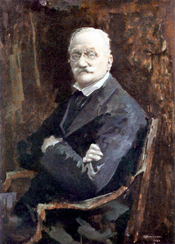
18 Mar 2007
BOITO: Mefistofele
Mefistofele, Opera in un prologo, quattro atti e un epilogo
Music and libretto by Arrigo Boito (1842-1918), based on Faust: Eine Tragödie by Johann Wolfgang von Goethe
Andromaca: Dramma per musica in three acts.
Ermione: Azione tragica in two acts.
Ippolito ed Aricia: Tragedia in five acts.
Idomeneo: Opera seria in three acts.
Paride ed Elena: Dramma per musica in five acts.
Orphée: Opera in four acts.
Music composed by Christoph Willibald Gluck (arranged by Hector Berlioz, 1859). Libretto by Ranieri de' Calzabigi
Alceste, ou Le triomphe d’Alcide: Tragédie en musique in a prologue and five acts.
Alceste: Tragédie opéra in three acts.
Medea: Melodramma tragico in three acts.
Oedipe à Colone: Tragédie lyrique in three acts.
Elektra: Tragedy in one act.
Fedra: Dramma per musica in two acts.
Les Troyens: Grand opéra in five acts.
Die Meistersinger von Nürnberg: Music drama in three acts.
Ariadne auf Naxos, Oper with a prologue and one act. Music composed by Richard Strauss. Libretto by Hugo von Hofmannsthal.
Der Schauspieldirektor [The Impresario], Singspiel in one act, K486.
Divertimento teatrale in one act.
Andrea Chénier, an opera in four acts.
La figlia del reggimento [La Fille du régiment (‘The Daughter of the Regiment’)], Opéra comique in two acts.
L’elisir d’amore, Melodramma giocoso in two acts.

Mefistofele, Opera in un prologo, quattro atti e un epilogo
Music and libretto by Arrigo Boito (1842-1918), based on Faust: Eine Tragödie by Johann Wolfgang von Goethe
Streaming Audio
| Mefistofele | Bass |
| Faust | Tenor |
| Margherita | Soprano |
| Marta | Alto |
| Wagner | Tenor |
| Elena | Soprano |
| Pantalis | Alto |
| Nereo | Tenor |